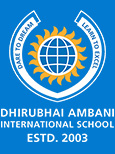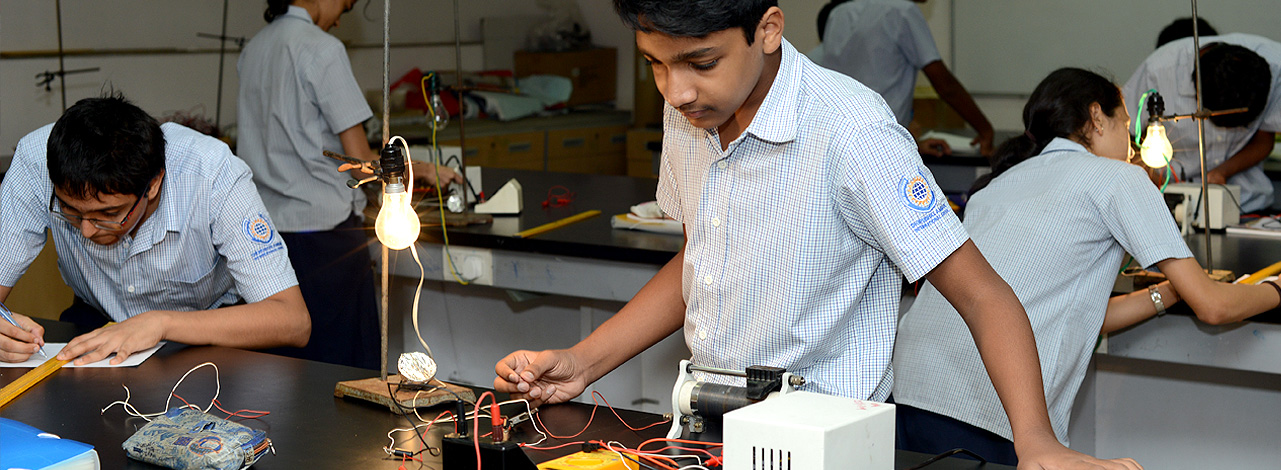Science Club
Everyone has, at some point of their life, experienced a desire to know something that they do not already know the answer to. This can be a complex question such as, ‘Can changes in diet and upbringing compensate for genetic abnormalities?’ or even something as innocent as a child saying, ‘How come humans can’t flap their wings and fly like birds?’ The purpose of a science project is to form a hypothesis based on the aforementioned ‘research question’ and then do research and perform experiments to prove the hypothesis. This data is collected and represented along with a conclusion and the result of the project.
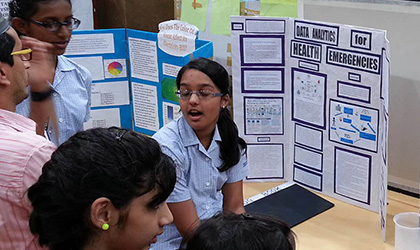
For the past 8 years, our school has held a Science Fair for the students of 7th, 8th and 9th standards. All students form teams of 2 and start working on their project towards the end of May. We are given circa three months to work on our projects during which we prepare our project using the proper scientific method. We had made sure that the format of our projects adhered strictly to IRIS and ISEF guidelines, the International bodies responsible for science Fairs.
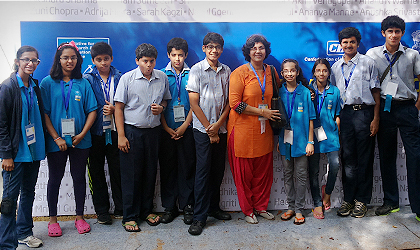
Interesting activities from the field of Sciences covering Physics, Biology and Chemistry which will enhance the students thinking skills and application if IT skills. Science quizzes, maintaining Science Journals, building an herb garden are some interesting activities initiated. Library visit, Internet research and basic exposure to scientific journals looking at recent discoveries etc will expose and update them on the latest happenings in the scientific world.
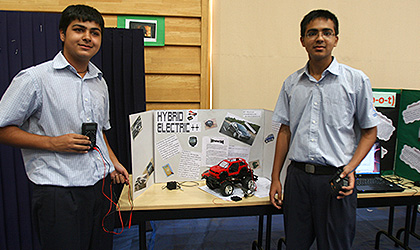
Science Fairs give students an opportunity to individually investigate a scientific problem. Students complete individual or team projects in which they are required to formulate a question, research a topic, design an experiment, collect and analyze data, and form a conclusion based on their work. These projects help students learn the scientific method by actually going through almost the same process that scientists use. Students also learn how to sequence data into an attractive display and how to make a clear and effective oral presentation of their work. Judged on creative ability, scientific thought, thoroughness and clarity, the top 20 projects are entered for the state level Intel Science Fair competitions.
